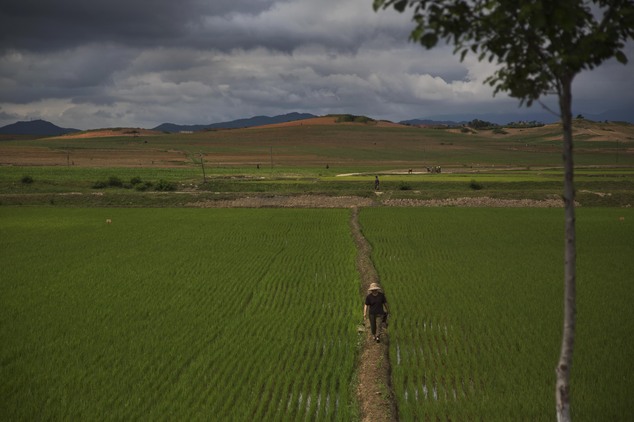- California Assembly OKs highest minimum wage in nation
- S. Korea unveils first graphic cigarette warnings
- US joins with South Korea, Japan in bid to deter North Korea
- LPGA golfer Chun In-gee finally back in action
- S. Korea won’t be top seed in final World Cup qualification round
- US men’s soccer misses 2nd straight Olympics
- US back on track in qualifying with 4-0 win over Guatemala
- High-intensity workout injuries spawn cottage industry
- CDC expands range of Zika mosquitoes into parts of Northeast
- Who knew? ‘The Walking Dead’ is helping families connect
[NPR] Tired of Seoul-sucking rat race, Koreans flock to farming
Kim Pil-Gi left his construction job in Seoul, South Korea, three months ago. Now he happily spends his days handling grubs: squirming, writhing, beetle larvae, each one about as thick as a grown man’s thumb. He sits at a tray, sorting them by size.
“At the construction company a lot of the time I’d wake up at 6 in the morning and work all night through to the next day,” he says. “That was really hard for me.”
South Korea has an overwhelmingly urban population. More than 80 percent of people live in cities. But in the past few years, something has started to change. Tens of thousands of South Koreans like Kim Pil-Gi are relocating to the countryside each year. His father, Kim Jin-Suk, left a marketing job in Seoul to start this farm.
“In the city you’re always running short of time, because you’re trying to get rich,” he says. “In the countryside, I find that I have more time for myself.”
This just happens to be lucrative, too. A pound of dried larvae powder sells for more than $400. The mother, Choi Young-Sik, gently places her hand on the writhing mass. She spent her career working for the government.
















